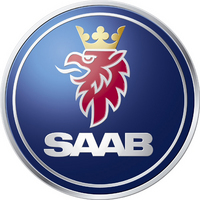Saab Case Settled With ACCC
AUTO CENTRAL – September 22, 2008: GM Holden Ltd and the ACCC have agreed to settle the ACCC’s legal action regarding an advertisement for Saab’s carbon offset program which was published last year.
Director of GM Premium Brands, Mr Parveen Batish, said Saab was pleased to be able to resolve this matter on the terms agreed with the ACCC and that Saab would continue to drive environmental initiatives for General Motors in Australia.
“We take our responsibilities as an advertiser very seriously and we welcome the ACCC’s acknowledgement in the settlement documents that we did not intend to mislead consumers about the carbon dioxide offset program” Mr Batish said.
In August 2007, Saab identified that one advertisement in respect of its carbon dioxide offset program was not as clear as it could have been. Of its own initiative, Saab immediately amended the advertisement and issued a revised version for publication. This occurred well before the ACCC or any authority had issued any guidelines regarding ‘Green’ marketing.
As part of today’s settlement, GM Holden agreed to not republish the original advertisement, to train all Saab marketing staff in relation to misleading and deceptive conduct in the context of ‘green’ marketing claims and to have this training reviewed as part of a scheduled review of its trade practices compliance program later this year.
Mr Batish said Saab was proud of its environmental leadership globally and locally and would build on the environmental programs it began last year as part of the Grrrrrreen campaign.
These environmental programs included the launch of Saab BioPower, making Saab the first and only car company to offer an ethanol powered production car in Australia, and one of the most extensive carbon dioxide offset programs in the automotive industry. Through this offset program run by Greenfleet Australia, an approved abatement provider under the Commonwealth Government’s Greenhouse Friendly initiative, Saab plants 17 native trees for every new, approved used and demonstrator vehicle purchased by the public, to offset one year’s worth of carbon dioxide emissions from those vehicles.
Saab commenced this carbon dioxide offset program in January 2007 which was announced via media release and subsequently communicated through a range of promotional materials including letters to customers who purchased Saab vehicles.
In the advertisement, Saab intended to advise readers that 17 trees would offset one year of CO2 emissions for each car, however some readers could have interpreted the advertisement to mean that Saab vehicles were carbon dioxide neutral over their life.
The revised advertisement described more clearly that the 17 trees would offset carbon dioxide emissions for one year only.
To date Saab has not received any complaints from any Saab purchasers about the original advertisement.
“It is important to reiterate that we had no intention to mislead consumers and we welcome the ACCC’s leadership in recently releasing publications concerning ‘Green’ marketing, carbon claims and environmental issues” Mr Batish said.
“The advertisement was one of a number of promotional materials around the program and was only published for a very short time before we identified it was not as clear as it could be and replaced it.
“As well as this, Saab has also initiated the planting of an additional 12,500 native trees through Greenfleet. Saab estimates these trees will offset 10 years of CO2 emissions from Saabs purchased during the period the advertisement was first published until it was replaced by the revised version on 12 August 2007.
“We took these steps because we feel it is important to demonstrate how committed we are to building and maintaining a relationship of trust and honesty with our customers.”
Mr Batish highlighted that the planting of the additional trees was solely Saab’s initiative.
“When combined with the trees which Saab has already arranged to be planted pursuant to the program, it means that over 47,500 trees have been planted or are scheduled to be planted on Saab’s behalf.”
Mr Batish said he believed environmentally conscious drivers would continue to support Saab for its responsible attitude to vehicle performance.
“Being an environmental leader is extremely important to Saab. Saab launched its BioPower range of vehicles last year and is proud to be the first and only car company in Australia to offer drivers a renewable driving alternative,” he said.
Saab BioPower is the first E85 flex-fuel car in Australia, capable of running on E85 (a blend of 85 per cent renewable ethanol and 15 per cent petrol) or unleaded petrol, in any mixture, from the one fuel tank.
“E85 filling stations are now operating in Rozelle, Sydney and Mawson Lakes and Parkholme, South Australia and we are hoping that E85 pumps will roll out in Australia’s other capital cities in the future,” he said.
Before E85 fuel becomes more widely available, flex-fuel cars like BioPower can run on standard unleaded petrol mixes currently available in Australia. GM Holden and Saab will continue to be a leader in the industry, providing alternative fuel vehicles, a diverse range of more economical vehicles as well as continuing to off-set vehicle CO2 emissions.



